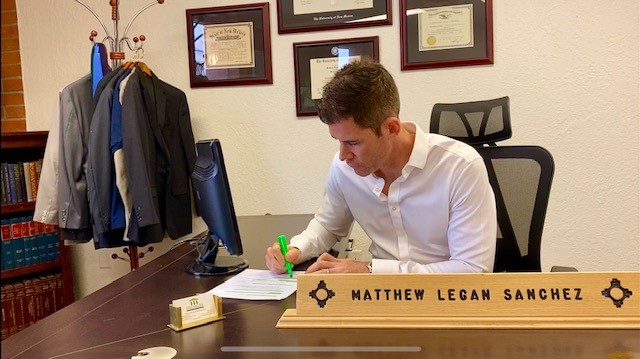
Custody and divorce cases are similar to plants and trees in many respects. Planting a seed is similar to filing a Petition, which starts one’s case. The seed, (Petition), grows into a trunk, which sections off into branches. The branches are similar to the various legal issues stemming from one’s case. Leaves, in turn, sprout along each branch in a manner similar to cases that grow from unique legal issues. These sprouting cases develop and guide New Mexico’s full body of law.
HOW A DIVORCE OR CUSTODY CASE BEGINS IN ALBUQUERQUE
Let’s consider a divorce or custody case. The case begins when either a Petition for Dissolution of Marriage, or Petition to Establish Paternity is filed (i.e. the seed is planted). In either scenario involving children, a Parenting Plan must be completed that resolves issues such as child support (i.e. a branch to one’s case). Over time, appellate cases (leaves) grow along the branch, guiding New Mexico law regarding the particular issue at hand.
In the past I have written extensively about child support. Click here, for more information on how child support is calculated.
Similar to a tree with many branches, the issue of child support branches off into sub-issues such as the end date for one’s support obligation.
WHEN DOES CHILD SUPPORT END IN NEW MEXICO?
Under New Mexico law, child support ends when the child is legally emancipated, either by court order or when the child reaches the age of 18 (or up to age 19 and until graduation from high school – whichever occurs first). Child support also ends if the child joins the military, dies, or gets married. Child support can continue indefinitely in situations where the child has a disability that makes it impossible for the child to become self-sufficient in adulthood.
CHILD SUPPORT FOR A DISABLED CHILD IN ALBUQUERQUE, NEW MEXICO
In the case, Cohn v. Cohn, 1997-NMCA-011, 123 N.M. 85, 934 P.2d 279, Father appealed the district court’s order requiring child support for his 37 year old son, George, who had been “severely mentally and physically handicapped since birth.” Id. ¶¶ 1-2. George was completely depended on his mother. Id. ¶ 2. The district court found that George had the mind of a three-year-old child and was incompetent, suffered from frequent epileptic seizures, had to be helped in bathing and dressing, and needed constant supervision. Id. On appeal, the New Mexico Court of Appeals held that George was “severely disabled” before reaching the age of majority and therefore the district court did not err in ordering Father to continue providing support for his disabled adult son. Id. ¶ 6.
WHAT IS THE LAW REGARDING CHILD SUPPORT AND SOCIAL SECURITY BENEFITS THAT A CHILD RECEIVES ON THE PARENT’S BEHALF?
Another sub-issue that stems from child support involves Social Security Benefits (i.e. Derivative Benefits) that a child receives on a parent’s behalf. In Mask v Mask, 1980-NMSC-134, the child of divorced parents began receiving monthly social security payments stemming from her father’s social security fund. Nevertheless, father was in default on his child support obligation before and during the time that child received social security payments. The Court held Father was entitled to a credit towards his child support arrears, for the amount of social security benefits that the child received while the arrears were growing.
A DISABLED PARENT MAY RECEIVE CREDIT TOWARDS CHILD SUPPORT FOR SOCIAL SECURITY BENEFITS THAT THE CHILD RECEIVES
The ruling in Mask was extended by Romero v. Romero, 1984-NMCA-049. In Romero the court held that a disabled parent may receive a full or partial credit against one’s ongoing child support obligation, during the period that a child receives social security benefits.
The law surrounding Derivative Benefits continues to grow. Recently the case, Gonzales v. Shaw, 2018-NMCA-059, made its way through the NM Court of Appeals. In Shaw, the child at issue was born with mental retardation, a club foot, and a genetic disorder. Expert testimony was presented that son was unable to care for himself, had impulse control problems, and did not have the ability to tell time. Son was receiving Social Security benefits for his disability.
Father first argued that his emancipated son was not disabled, and in need of continuing support. Father next argued that he should receive credit for the Social Security benefits that his son received as a result of his disability.
The Court of Appeals upheld the district court’s ruling that son was disabled and entitled to continuing support. The court also clarified the rulings in Mask and Romero, ruling that a parent is only entitled to credit for the Social Security benefits that a child receives, when the Social Security benefits are created through the parent’s fund or disability. In Shaw, the court reasoned that son was receiving Social Security benefits due to his own personal disability. As such, Father was not entitled to a credit towards his child support obligation for son’s Social Security benefits.







